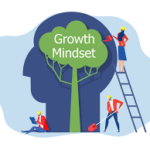Music has a magical way of touching our hearts and souls, transcending the barriers of language and culture. In this article, we will explore the profound impact of music therapy – a therapeutic practice that goes beyond mere enjoyment, delving into the realms of healing and motivation.
Music’s Impact on Emotions
Have you ever noticed how a particular song can instantly change your mood? Music has an extraordinary ability to influence our emotions, serving as a powerful outlet for a myriad of feelings. From joy to sorrow, music connects with the deepest recesses of our minds, providing solace and expression.
Role of Music in Healthcare
Music therapy, defined as the clinical and evidence-based use of musical interventions, takes this emotional connection a step further. It is not just about creating a pleasant atmosphere; it’s a targeted approach to achieving individualized healthcare goals. Whether in hospitals or rehabilitation centers, music therapy plays a pivotal role in enhancing the overall well-being of individuals.
Accredited Musical Therapists
Behind the scenes, accredited musical therapists are the maestros orchestrating the healing melodies. These professionals undergo rigorous training to employ various musical interventions, including listening sessions, composing personalized pieces, and encouraging spontaneous improvisation. Their expertise transforms music into a therapeutic tool tailored to each individual’s needs.
Memory and Music Therapy
One of the remarkable facets of music therapy is its impact on memory. For individuals grappling with conditions like dementia, familiar tunes become a bridge to the past. Music therapy helps retrieve memories thought lost, contributing to significant improvements in cognitive functions and overall mental well-being.
Collaboration with Healthcare Professionals
Accredited music therapists work hand-in-hand with healthcare professionals to address a spectrum of goals. Whether enhancing communication skills, fostering social interactions, encouraging self-expression, or improving the overall quality of life, the collaboration between these professionals yields holistic benefits for patients.
Educational Gap in Music Therapy
Despite the proven therapeutic benefits of music, there exists a notable educational gap. Many healthcare practitioners remain unaware of the potential of music in achieving healthcare goals. Bridging this knowledge divide is crucial to unlock the full potential of music therapy across various medical disciplines.
Proven Health Benefits
Scientific studies consistently affirm the positive impact of music therapy on long-term disabilities. A notable example is the significant improvement observed in patients with Parkinson’s disease. Music therapy, when integrated into treatment plans, contributes not only to mental well-being but also physical improvements, showcasing its versatility and efficacy.
Conclusion
In conclusion, the healing power of music therapy is a symphony that resonates within us, addressing not just physical ailments but also the emotional and psychological aspects of our well-being. As we continue to unveil the therapeutic potential of music, a harmonious future awaits, where the notes of healing and joy blend seamlessly.
FAQs
- Is music therapy only for individuals with specific health conditions?
- No, music therapy can benefit individuals of all ages and health statuses, promoting overall well-being.
- How can one become an accredited music therapist?
- Accredited music therapists typically undergo specialized education and training programs.
- Are there specific genres of music used in therapy, or does it vary?
- The choice of music depends on individual preferences and therapeutic goals, encompassing a wide range of genres.
- Can music therapy be self-administered at home?
- While some aspects can be enjoyed at home, it’s recommended to seek guidance from a qualified music therapist for optimal results.
- Is there ongoing research in the field of music therapy?
- Yes, researchers continually explore new applications and benefits of music therapy in various healthcare contexts.









